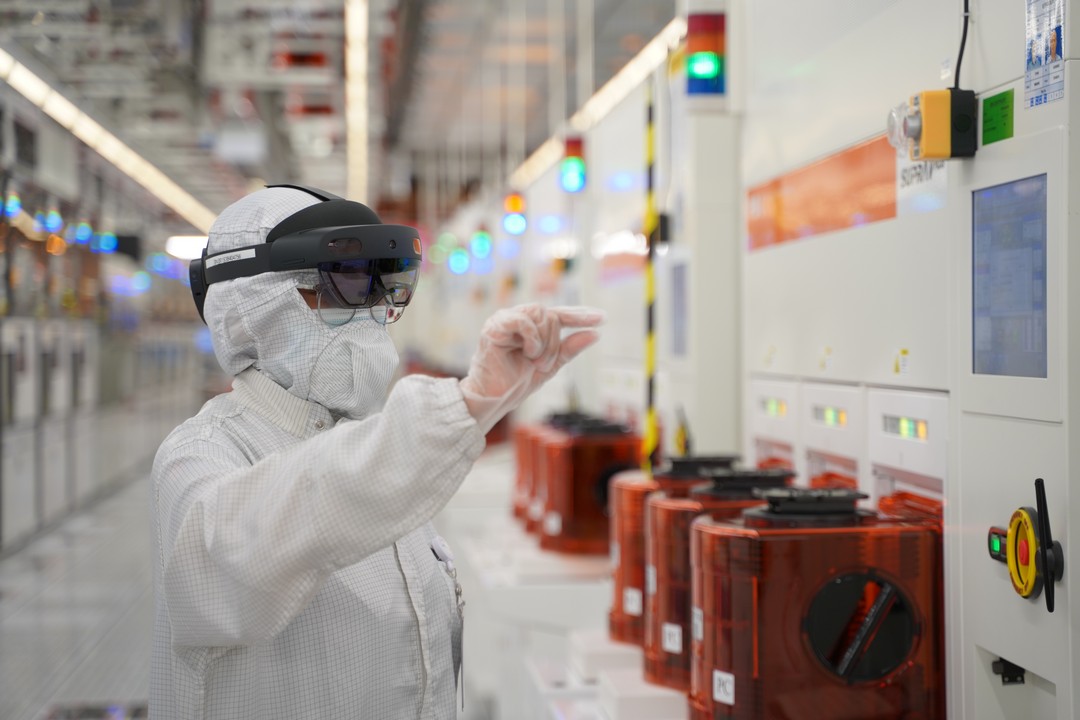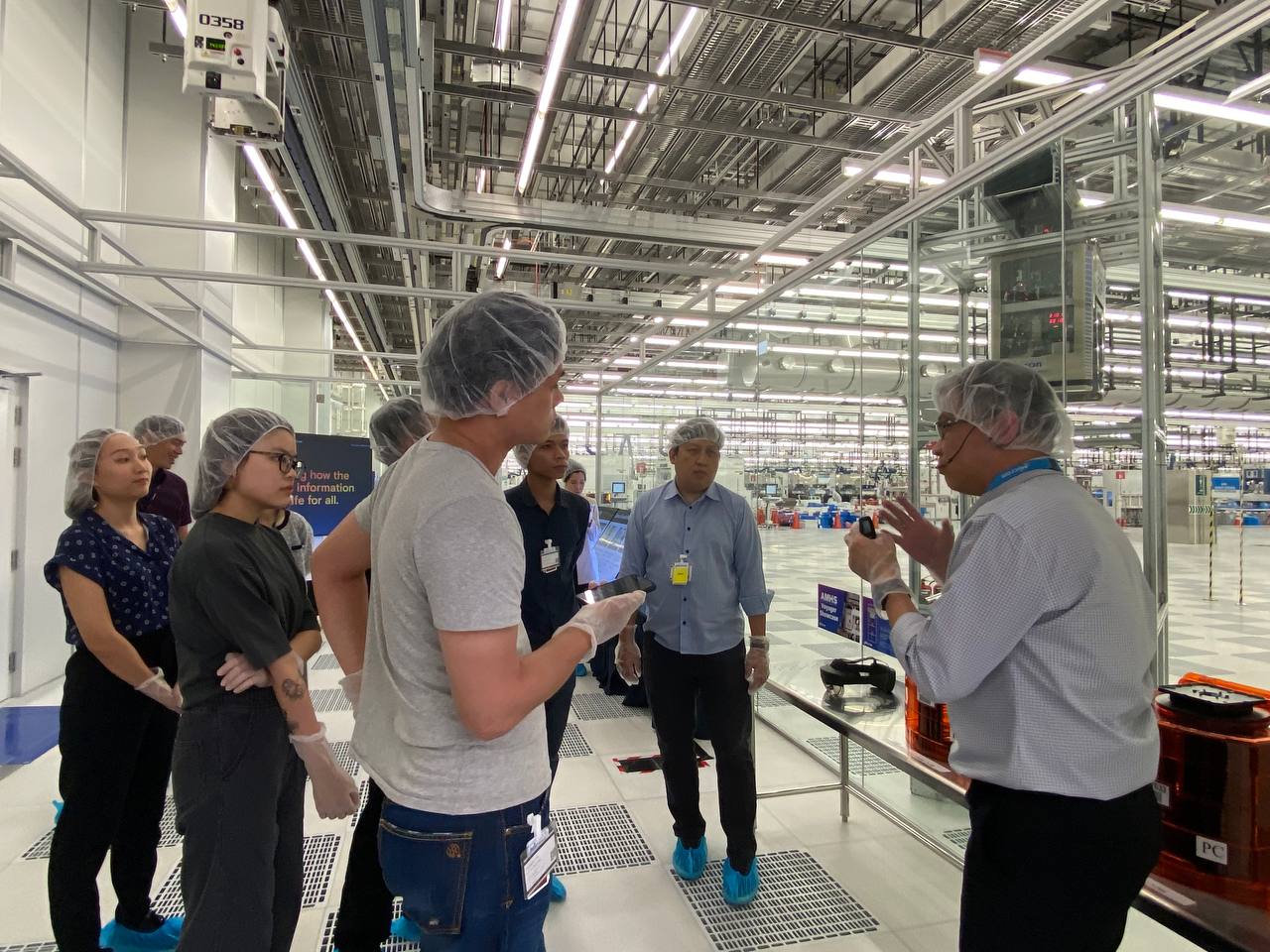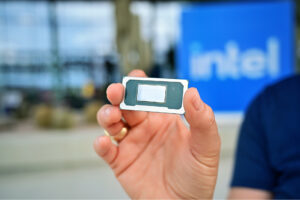
Speak about AI and Micron may not be the first name on recall, but the semiconductor firm is riding the wave all the same by producing the fast memory chips sitting next to Nvidia’s much-touted graphics processing units (GPUs) that are needed to train and use AI today.
At its fabrication plant right on the northern border of Singapore, the American memory chip maker is producing flash memory products designed to handle the growing loads of data that needs to be crunched for AI.
And the company is using generative AI (genAI) to do its job more productively. Like many businesses, it is jumping in quickly and expanding the use of genAI as the technology matures.
A project under development now is MyAssistant, which provides a unified landing page for all the company’s smart apps that staff use for their daily work.
The AI assistant advises users what to focus on, given the tasks they have on hand. It’s like a personal assistant but one that communicates with natural language so staff are more likely to follow its suggestions.
Over time, it may also be automated enough to monitor jobs, thus reminding Micron staff that they may have projects they should focus on on a particular day, for example.
Another potential genAI use case at the semiconductor firm is a co-pilot for smart manufacturing. With it, staff on the production floor can be guided on how to carry out tasks with specific instructions, communicated in an easy-to-understand manner.
In future, this project under development might automatically trigger jobs for staff, helping them to be more focused and streamlined on tasks each day.
So far, this first wave of genAI use cases have been focused mostly on delivering friendlier user interfaces by using natural language, said Koen De Backer, Micron’s vice-president for smart manufacturing and AI.
For example, with AI trawling all the internal documentation and database and presenting it clearly, junior staff can quickly gather some of the knowledge that more experienced colleagues have gained over a decade or two, he added.
“If you are in procurement and want to cut costs, you can ask the AI where you can cut costs and how to negotiate with a supplier… armed with market intelligence,” he told reporters during a visit to the Micron Singapore fabrication plant a fortnight ago.

The modern facility, dubbed Fab10 and opened in 2019, already deploys much of the AI and machine learning that Micron has been introducing in its semiconductor production since 2015.
A central Big Data team started consolidating data in those early days, then quickly moved to real-time analytics to enhance the manufacturing process. The analytics was later moved to the cloud.
Today, the Singapore plant makes use of more than 3,000 fully automated equipment carriers and robots that move around the factory floor to deliver the wafers and other materials needed to make the NAND flash memory components.
Across its plants worldwide, Micron captures 30TB of new data each day. Altogether, 590,000 sensors are used on the production floor, with 23 million wafer images run through AI models weekly, so the company can better find any potential issues and improve production quality. Time-to-market for new products has been cut in half, it says.
Given its earlier embrace of AI, GenAI does seem a natural followup for Micron. After making the interface more user-friendly through natural language, the next step could be optimising how operations are carried out.
For example, genAI can be used to generate several scenarios for deploying the equipment in a plant to ensure its optimum use, said De Backer.
By inputting the specifications and the optimisation logic that is used now, Micron can ask a genAI program to find and present the optimal way to place its equipment to maximise results, he explained.
Despite all of its benefits, AI does present a risk to companies, especially those that depend heavily on their cutting-edge intellectual property.
Early last year, just as the ChatGPT chatbot was becoming popular, Samsung found its staff leaking sensitive code to the public through the use of genAI programs.
The Korean company, a competitor to Micron in the semiconductor business, subsequently banned its use, at least temporarily.
Like many companies, Micron now keeps its genAI chatbots running internally, with no data shared outside. It’s also trying to warn its staff of risks like hallucinations, which cause AI chatbots to spew inaccurate responses.
GenAI is a help but it doesn’t replace people, said De Backer. “The accuracy is sometimes not there… so we are educating users when can you trust an AI and when to check that it’s correct.”
CORRECTION at 27/12/202, 5:05pm: An earlier version of the article mentioned that the Singapore facility made high-bandwidth memory (HBM) products. This is incorrect. It made NAND products. We are sorry for the error.






